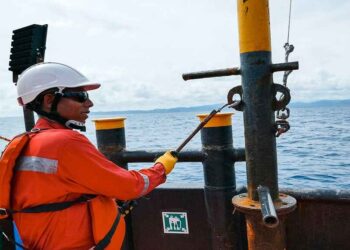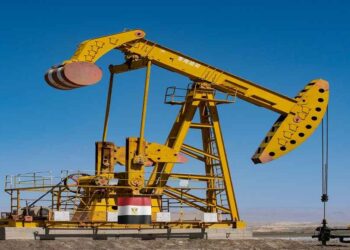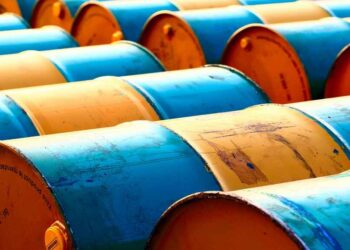Trump Plans to Ease Rules on Handling Toxic Oil Wastewater
The Trump administration wants to give oil and gas companies more flexibility in how they handle toxic wastewater.
This wastewater, called produced water, comes up during oil and gas drilling. It contains both man-made chemicals and dangerous natural compounds from deep underground. These include substances like arsenic and benzene, which can cause cancer. Fracking creates a lot of this toxic water, and companies are struggling to deal with it. In the Permian Basin, injecting the water underground has caused earthquakes. Because of this, researchers are trying to find better ways to manage it.
Right now, the c has different rules for different parts of the country. Wastewater rules are stricter in the Eastern United States than in the drier Western states. Last week, the agency said it plans to change these rules to help support energy production.
It is looking at new options, like allowing treated oilfield wastewater to be released into rivers and streams in more areas.
The EPA also said it might allow this water to be reused in industry and farming. This includes using it for cooling data centers and artificial intelligence systems or for watering grasslands. The agency may also explore how to extract valuable materials like lithium from the water. These changes build on an earlier EPA report released during Trump’s first term that looked at ways to manage produced water.
“EPA will revise wastewater regulations from the 1970s that do not reflect modern capability to treat and reuse water for good,” said EPA Administrator Lee Zeldin in the announcement.
Some states, like Texas, are already working on rules that allow this water to be released into rivers. In some cases, the water is treated first, in others it is not. Pilot programs are also testing how safe it is to use this water for growing crops. The EPA announcement shows that the federal government now supports these ideas. The statement claims these changes could lower energy costs, but treating the water still costs more than just injecting it underground.
“When I see phrases like lower energy costs, regulatory flexibility, beneficial reuse—they are all code words for relaxing protections to allow cheap disposal of what is very hazardous material,” said John Quigley, a fellow at the University of Pennsylvania’s Kleinman Center for Energy Policy and former secretary of the Pennsylvania Department of Environmental Protection.
“The regulations were subpar before, and now what’s going to happen is the government is allowing the public to be poisoned without any kind of consent or knowledge,” Muth said.
“We anticipate completing the rulemaking process including soliciting public comment within the next year,” the EPA press office said in an emailed statement.
The EPA says that although it plans to make things more flexible, it will still follow the Clean Water Act. It says this will ensure that waters remain safe for swimming and fishing.
The Old Rule Was Created Before Fracking Took Off
The wastewater rules the EPA currently uses were created in 1979. The rule allows oil and gas companies to discharge wastewater into surface water for wildlife and livestock use, but only in the West, west of the 98th meridian. This imaginary line separates the drier West from the wetter East. The rules do not demand that the water be treated, but some individual discharge permits do.
In Western states like Colorado, Texas, and Wyoming, this kind of discharge is already happening. Many of these permits were issued before the fracking boom began.
These old rules only set limits on how much oil and grease can be in the water. However, permits often include limits for other harmful substances too, like boron, chloride, and benzene, which can cause cancer.
In the East, the rules require that wastewater must be treated at a central facility before it can be released. States in this region can ask the EPA for permission to issue their own discharge permits. Texas, which lies across both sides of the 98th meridian, is allowed to issue permits across the state.
These regulations were created before fracking became common. Fracking creates far more wastewater than older drilling methods. Chemicals used in fracking often return to the surface in the produced water.
Since 2005, these fracking chemicals have been exempt from regulation under the Safe Drinking Water Act. Environmental advocates call this exemption the “Halliburton loophole” because of the connection to then-Vice President Dick Cheney and his ties to Halliburton, a major oil and gas company. Even in states that require public chemical lists, companies can hide ingredients they consider trade secrets.
Produced water is also exempt from hazardous waste management rules under a federal law called the Resource Conservation and Recovery Act.
Many of the chemicals in produced water have not been studied for toxicity. This makes it hard to set health and safety standards for treated wastewater.
The EPA says the Clean Water Act requires it to update pollution limits as treatment technology improves. It claims that better and cheaper ways to treat produced water are now available.
Mike Hightower, an environmental engineer with the New Mexico Produced Water Consortium, believes the EPA will soon regulate more pollutants, not just oil and grease. He has worked with the EPA on this issue.
The EPA now says it will consider allowing treated wastewater to be used or discharged in more places, likely including areas east of the 98th meridian.
“A revision could lead to something stronger,” said Nichole Saunders, an energy attorney in Texas with the Environmental Defense Fund. But she says it depends on whether the EPA uses real science and honest testing.
“Unfortunately, it remains to be seen whether this EPA is up to that task, and I fear for the worst,” she said.
Saunders added that a leaked plan showing job cuts in the EPA’s Office of Research and Development made her even more concerned.
Treatment Costs Still Stand in the Way
The new move by the EPA builds on what the Trump administration did earlier. In 2020, the agency released a report that included input from industry, environmentalists, academics, and state officials. It looked at wastewater rules under the Clean Water Act.
The report said the biggest barrier to discharging wastewater was the high cost of treatment. State officials questioned how treatable the wastewater really is. They also worried about the risk to people and nature if more of it is released into rivers or spread on land.
Hightower believes treatment methods have improved enough to make reuse of this water more practical. Pilot programs in Texas and New Mexico are testing different methods, like thermal desalination, to remove the high salt content in produced water from the Permian Basin.
He believes the EPA is going in the right direction. He says a national strategy is better than leaving each state to figure it out alone.
“I don’t think it will change the quality of the water requirements,” he said. “But it does give an impetus that this is a national strategy rather than an individual state strategy.”
Pennsylvania’s Struggle with Toxic Waste
If rules change, Pennsylvania may be affected. This state is second in the country for natural gas production, after Texas. Managing wastewater has been a long-standing problem there.
The Marcellus Shale, a large gas-rich rock formation, lies beneath Pennsylvania, West Virginia, and New York. The wastewater from drilling here is highly radioactive. Treating it creates sludge that contains concentrated radioactive material.
“You have to keep in mind that Marcellus wastewater is among the most hazardous substances in the world,” said Quigley, the former Pennsylvania environmental chief.
He says reusing this kind of waste has gone badly in the past. It has allowed companies to label toxic material as helpful, which has caused harm.
“You’re basically putting lipstick on a pig when you do this,” said Ted Auch, Midwest director at FracTracker Alliance in Pennsylvania. “You’re letting them pretty up their waste and reclassify it as something that it has no business being reclassified as.”
As scientists learned more about this waste, Pennsylvania updated some of its rules. Still, the state is dealing with the impact of early fracking years.
For a long time, drillers were allowed to use their wastewater to control dust on roads. That practice is now banned, but illegal spreading still happens. A 2023 report showed serious problems with how the state tracks oil and gas waste. The state also allowed treated wastewater to be released from waste management facilities into rivers.
Researchers are still studying the long-term impact on health and the environment. Early results are troubling. Scientists found increased radiation in freshwater mussels downstream of discharge sites, and in river sediments near landfills that accept oil and gas waste.
The Pennsylvania Department of Environmental Protection did not respond when asked about current discharges of treated produced water.
“In Pennsylvania, we have not gotten the management of oil and gas wastewater right yet,” Quigley said.
States Will Still Have the Final Say
Even with federal changes, states like Pennsylvania and Texas still control how wastewater is handled. States with authority to issue discharge permits will continue to shape how this issue is managed.
“If the states have primacy, then the states have rules that they will use,” said Hightower. He explained that federal actions do not override what states decide.
Pennsylvania has its own water protection law, the Clean Streams Law. Quigley says it is stronger than the federal Clean Water Act. The state also has a constitutional right to clean air and pure water.
“The state does not have to follow the federal lead. The state can go beyond federal requirements,” Quigley said. “The state can protect its natural resources and public health regardless of what EPA does.”
State Senator Katie Muth has reintroduced two bills. One would reclassify oil and gas waste as hazardous. The other would stop companies from sending this waste to regular landfills.
She says Pennsylvania has never fully addressed how much toxic waste it has produced since fracking started nearly 20 years ago.
“If you want to be an energy leader, then you better acknowledge that you are also a leader in waste production,” Muth said.



















































